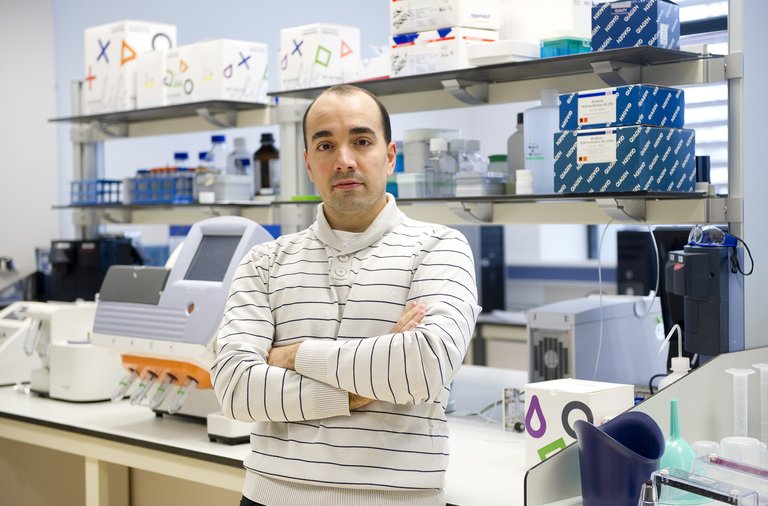UPV analyzes the incidence of genetic variants related to alcoholism

UPV/EHU researchers have analyzed the frequency with which genetic variations related to alcoholism occur in the population of the Basque Country and Spain, finding in the population variants that significantly increase the risk associated with harmful alcohol consumption. In addition, for the first time a link has been made between these genetic variants and women with high alcohol consumption. Some of the results have been published in the journal Addiction.
Researchers from the UPV BIOMICS group have analyzed the genes of two families. On the one hand, the genes of the enzymes involved in the process of metabolizing alcohol have been analyzed and, on the other, the receptors and enzymes related to the dopaminergic system they encode. In fact, it is known that some variants of the genes of enzymes that metabolize the alcohol molecule are closely related to higher consumption, as they alter the metabolic rate up to 30 times higher. Researchers have studied genetic varieties of enzymes that metabolize 70% of alcohol. As for the second family of genes, the studied ones are the genes related to the entire life of dopamine, related to its production, conduction, behavior towards the receptors and destruction. According to researchers, the etiology of addiction is the result of a mixture of the system that regulates dopamine, a neurotransmitter that modulates the brain reward system.
In all cases, the influence of mononucleotide polymorphisms (PNS) – a single “letter” change at a specific point in the gene – has been analyzed in two populations: people with high alcohol consumption and people dependent on alcohol.
Polymorphisms that significantly increase the risk associated with harmful alcohol use have been detected among people who overuse: ADH1B and DRD2 for men and women and MAOA for women exclusively. Analyzing the relationship between environmental variables and harmful consumption of alcohol, a high-risk profile has been observed: men, smokers, who eat a lot of meat and little fruit and vegetables, who work in professions that do not have a high level of instruction and with little physical activity.
Among alcohol-dependent people, a significant association is observed for: in a SNP of the ADH1B gene, both sexes; in the SNPs of the TH, COMT, DRD2 genes, only in men; and with DRD3, only in women.
The fact that the investigation of excessive consumers was carried out with a very large sample of 1,533 people (653 cases and 880 controls) of the EPIC project (European Prospective Investigation into Cancer and Nutrition), half men and the other half women, has allowed stratification by sex and adjustment for environmental variables that affect alcohol consumption, which “confers high reliability to the results”. “To date, the Caucasian population in Spain has been analyzed through very small samples and with very few women,” he added. The sample of dependent patients was much lower, so the results are less consistent.
Buletina
Bidali zure helbide elektronikoa eta jaso asteroko buletina zure sarrera-ontzian








